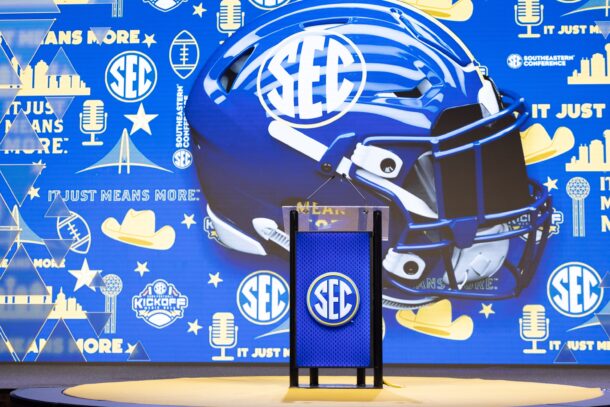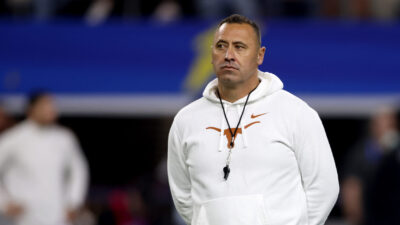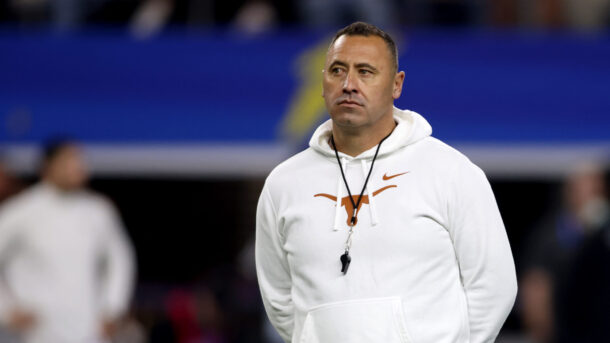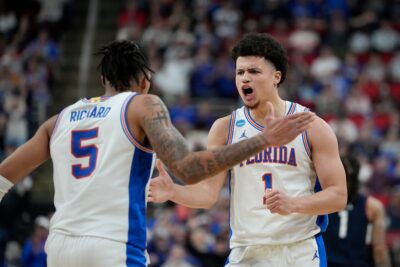Ad Disclosure

Summer cleaning, SEC East: What to keep, what to toss in 2016
By Joe Cox
Published:
In an odd way, your favorite SEC football team is a little like your family. The summer being football’s relative down time, there’s some house cleaning going on. Teams take an assessment of 2015 and try to figure out what they want to keep for 2016, and what they’re hoping to throw away in the new season.
Here’s one thing to keep and one to dump for each East squad in 2016 — and why fans should expect things to stay the same … or to change.
Florida
Keep: Their tough run defense.
The Gators allowed 128 rushing yards per game and just 3.5 yards per carry. At some schools that might be recording breaking, but at Florida, that’s business as usual.
In six of the past seven seasons, the Gators have held opposing rushers to 3.5 yards per carry or less. There’s little reason to think that 2016 will be different. All-SEC defensive linemen Bryan Cox (second team) and Cece Jefferson (third team), as well as stud linebacker Jarrad Davis (second team) anchor a tough front seven. With a secondary anchored by all-world CB Jalen Tabor, if Florida can put opposing teams in passing situations, it will be a long night for those QBs.
Toss: Their ugly running game.
Florida averaged 3.5 yards per carry on the season. The last time Florida was that bad: 1992. Florida’s line was very young in 2015, and the 46 sacks allowed is also a shocking bad stat. But Kelvin Taylor, while solid, lacked the sizzle to light up defenses. The conventional wisdom is that stout and speedy JUCO transfer Mark Thompson, and his 242-pound frame, will change the Florida offense in a big way — starting with those rushing numbers.

Georgia
Keep: The NCAA’s leading pass defense in opposing yards per game.
Sure, going against a mediocre group of QBs helped, but holding opponents to 156 passing yards per game is something worth striving to repeat. Given the addition of defensive wizard Kirby Smart as the Georgia head coach and the return of all four starters from last year’s secondary (as well as a schedule which is again fairly light on great passers, Chad Kelly aside), Georgia’s numbers will probably be pretty similar in 2016.
Toss: An ineffective passing offense.
UGA was No. 1 in passing defense, but No. 104 in passing offense. Three QBs tried their hand at the position in 2015, but they averaged just 185 passing yards per game. Top receiver Malcolm Mitchell is gone, but with a talented (if injury prone) stable of running backs, sooner or later, stud frosh Jacob Eason will give UGA the passing game that it has lacked for the last two seasons. If sooner, Eason will try to become the first true freshman quarterback to win an SEC title in the divisional era.

Kentucky
Keep: A 4-1 start.
In each of the past two seasons, UK opened 4-1. With Mark Stoops in his fourth season, and still searching for his first bowl appearance, it is critical that UK come out of the gate strong. A 4-1 mark in 2016 likely would mean ending a brutal 29-game losing streak to Florida (as few would forecast UK to win at Alabama in game five). It would also mean that Kentucky took care of business at home against a dangerous Southern Miss squad in their opener, and beat South Carolina for a third consecutive year. If UK got four wins in the first five games in 2016, two more wins should be easy to find.
Toss: A 1-6 finish.
The Wildcats squandered good starts to 2014 and 2015 by falling apart in SEC play. A failure to beat middle of the pack SEC opponents like Mississippi State, Mizzou and Vandy has kept Kentucky out of the bowl picture.
This season, the schedule shapes up pretty well, with home games against Austin Peay, Vandy, and a Prescott-less Mississippi State in the final seven games. If new offensive coordinator Eddie Gran can get solid QB play from Drew Barker and find ways to feed running backs Boom Williams, Jojo Kemp and Mikel Horton, Kentucky’s 2016 stretch run is likely to be much improved from the past two late fades.
Missouri
Keep: A very tough defense to score on.
Opponents averaged just 16.2 points per game against the Tigers last year, fifth-best in FBS football. There’s very little reason to think much will change, as the Tigers return six of the front seven starters. That defense, which was second nationally in tackles for loss, will be led by second-team All-SEC pick Charles Harris, who will continue the Mizzou tradition of defensive ends who punish QBs with great intensity and frequency. Mizzou was 5-0 in 2015 when it outgained its opponent, and 0-7 when it didn’t, which means the defense will probably live up to its end of the bargain.

Toss: A miserable offense.
Holding opponents to just 16 points per game is amazing, but failing to score even two touchdowns per game of their own (13.6 PPG) doomed the Tigers to a poor season. New coach Barry Odom and offensive coordinator Josh Heupel know those numbers have to improve.
QB Drew Lock is a year older and Oklahoma transfer Alex Ross should help Ish Witter and the running game. Mizzou probably won’t be great on offense in 2016, but it’s hard to imagine how they could be worse — which, when coupled with their defense, might be enough for a bowl trip.
South Carolina
Keep: A very healthy turnover margin.
The Gamecocks went +5 on turnovers in what was a nightmarish 2015 season. It has to be comforting for fans to know that even when the wheels fell off, the Gamecocks kept control of the football and kept games close — they lost their last five games (after Spurrier’s resignation) by a total of just 26 points.
With Will Muschamp now running the ship, there’s reason to suspect that Carolina will continue to force a fair amount of picks and fumbles, and then run a low-risk offense that will keep games competitive in 2016. With a few lucky breaks, the Gamecocks could be back in a bowl quickly.
Toss: The run defense.
Muschamp’s biggest task is to fix the SEC’s worst run defense, which allowed more than 5 yards per carry in each of the past two seasons (5.1 ypc in 2015).
If you wonder how Carolina lost to Missouri and Kentucky in 2015, look no further than getting outrushed by two offenses that were hardly juggernauts. The loss of Skai Moore to season-ending injury makes this a tough task, but Muschamp will blend talented freshmen like Darius Whitfield and Stephon Taylor with veterans like Marquavius Lewis and likely cobble together an improved run defense in 2016.
Tennessee
Keep: An offense that puts up over 35 points per game.
In 2015, UT averaged 35.2 points per game. That led the East. The steady climb of UT’s scoring output in the Butch Jones era (24 to 29 to 35 points per game) demonstrates how quickly and seamlessly he has blended his potent offense with some outstanding talent.

This season figures to feature another similar uptick — maybe toward 40 points per game? Between Joshua Dobbs’s dual-threat skills and the hammering ground attack of Jalen Hurd and Alvin Kamara (not to mention superb return men on special teams), UT will be a threat to score any time and any place. Can that put them back on top of the East? Very possibly.
Toss: A 2-4 record in games decided by one score.
Times have changed in Knoxville since Jones inherited a team that had lost seven games in three straight seasons. That said, despite winning nine games last season, UT was below part in close games. Blowing early leads to Oklahoma, Florida, and Arkansas turned what could have easily been an 11-2 kind of season into a more pedestrian year. Will Dobbs’s senior leadership make the difference? Or can UT’s talented defense (featuring All-SEC first teamers Derek Barnett, Jalen Reeves-Maybin, and Cam Sutton) make the big stops to preserve wins? The SEC — and the playoffs — await the verdict.
Vanderbilt
Keep: The tough defense to score on.
Vandy allowed just 21.0 points per game last season, which ranked them 22nd in the nation, a colossal improvement from 104th in 2014. Led by second-team All-SEC linebacker Zach Cunningham, Vandy figures to continue to be solid against the run (4.0 ypc for opponents), and will unleash a talented secondary to make big plays, and hopefully lead the Commodores back to a bowl berth for the first time under Derek Mason.
Toss: A weak offense.
Much like Mizzou, Vandy brought a stout defense, but a pitiful offense to the SEC last year. Averaging just 15.2 points per game, Vandy ended up 123rd in scoring. Admittedly, much of the problems came from splitting time among multiple QBs, but Kyle Shurmur will start and Vandy will go with more of a pro-style offense built around running back Ralph Webb.

He may well become Vandy’s career rushing leader (he’s 1,084 yards behind current leader Zac Stacy). If Vandy can grind out a few more wins behind Webb, Commodore fans may have a 2016 worth remembering.
Joe Cox is a columnist for Saturday Down South. He has also written or assisted in writing five books, and his most recent, Almost Perfect (a study of baseball pitchers’ near-miss attempts at perfect games), is available on Amazon or at many local bookstores.




